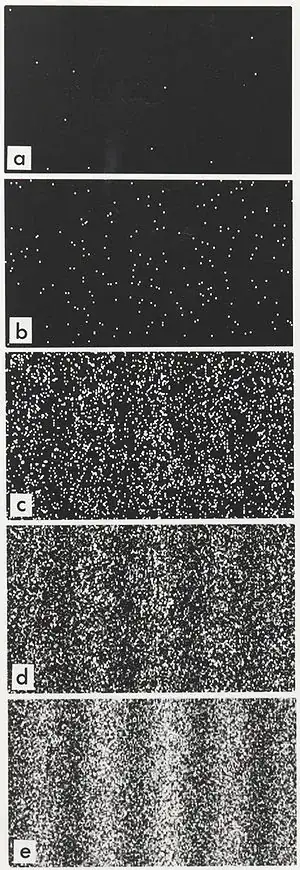The electron can be whatever we want it to be, we create the mathematical models in which the electron is a part of, so we can dictate the rules under which the electrons behave;
Quantum Mechanics is just a mathematical model, that includes mathematical objects like, "the electron" that we use to make predictions about the physical world. Just like we use numbers and fields, abstract objects like "electrons" are purely mathematical in nature, and we don't necessarily examine whether or not they "exist", because "existence" is a purely philosophical subject that's outside of the scope of the practice of physics.
In this way, we are free to dream of objects that can exhibit all kinds of "weird" properties, like the ones that particles have in Quantum Mechanics, that don't necessarily "exist" in a philosophical sense, but as long as our models work, we can keep on adding more and more layers of abstractions, because its our model, and we can make it whatever we want it to be! As long as it can make accurate predictions about the real world;
When we say that Gravity is a force, we don't necessarily mean that there is some kind of "rope" attached to the Earth and the Sun system, or when we say that Gravity is the curvature of the fabric of spacetime, we don't necessarily mean that there is some physical fabric that bends so that objects can fall into it, and create what we see as Gravity, either. Its all metaphorical and mathematical in nature, just a way for us to describe operations that will yield accurate predictions, in a yet consistent and rigorous mathematical way.
In that framework, the electron - we have made it - to be a propability cloud that extends EVERYWHERE in the universe. There is a small probability that we can measure the electron to be very far away (when we do measure it and its wave function collapses), but that propability is extremely low so it never happens...
So the electron IS its wavefunction, and that is not weird at all, because the electron is an abstract mathematical object so it can behave however it likes! Also for example, the electron can be a particle and a wave at the same time, because who cares? Its our model and we can have the electron be whatever we want it to be...
Will such a theory make accurate predictions about the Universe? If no, then we don't use it, if yes, then at the very least, we have proved that our theory is at least usefull.
So the only thing that we can say about the nature of electrons, is that in the framework of their models, they are helpfull mathematical objects, that constitute very helpfull theories, like Quantum Mechanics...
Answering "why" these theories are so helpfull, is outside of the scope of physics.
